No man is good enough to govern another man without that other's consent
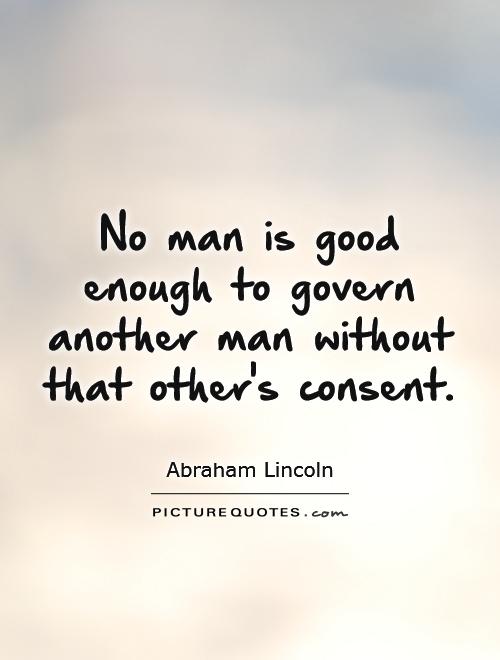
No man is good enough to govern another man without that other's consent
Abraham Lincoln, the 16th President of the United States, is often remembered for his strong belief in the principles of democracy and equality. One of his most famous quotes, "No man is good enough to govern another man without that other's consent," reflects his deep commitment to the idea of self-governance and individual freedom.Lincoln's belief in the importance of consent in governance can be traced back to his early political career. As a young man, he witnessed firsthand the injustices of slavery and the ways in which individuals were denied their basic rights and freedoms. This experience shaped his views on the relationship between government and the governed, and he became a staunch advocate for the idea that all individuals have the right to determine their own destinies.
Throughout his presidency, Lincoln worked tirelessly to uphold the principles of democracy and ensure that all individuals were treated with dignity and respect. He believed that government should be of the people, by the people, and for the people, and that no individual should be subject to the rule of another without their consent.
Lincoln's commitment to the idea of consent in governance was put to the test during the Civil War, when he faced the challenge of preserving the Union and ending the institution of slavery. Despite the immense pressures and challenges he faced, Lincoln remained steadfast in his belief that all individuals have the right to self-determination and that no man should be allowed to govern another without their consent.




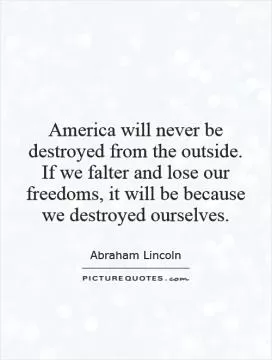

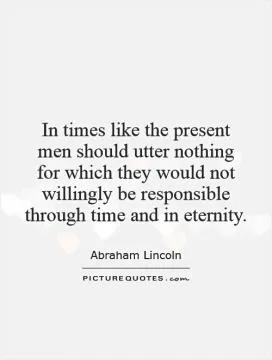
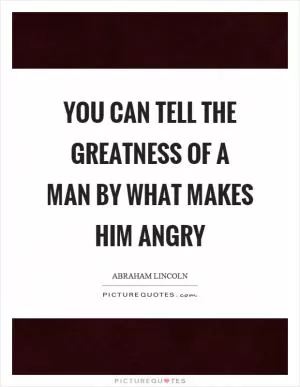
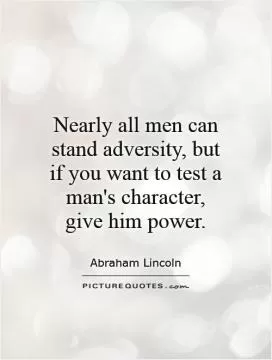
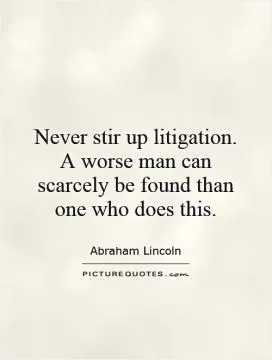


 Friendship Quotes
Friendship Quotes Love Quotes
Love Quotes Life Quotes
Life Quotes Funny Quotes
Funny Quotes Motivational Quotes
Motivational Quotes Inspirational Quotes
Inspirational Quotes